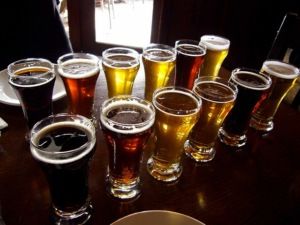News
More Danes choosing alcohol-free beer
This article is more than 8 years old.
Sales of alcohol-free beer jump significantly in a year

More varieties of non-alcoholic beers are available in Denmark (photo: Paul Josephs)
Beer-loving Danes are starting to develop a taste for alcohol-free beer. Sales of alcohol free beer have risen significantly over the past year according to the brewery association Bryggeriforeningen. In the past year, sales of non-alcoholic beer have increased by 19 percent to over 9 million cans and bottles. Over a three year period, there has been a threefold increase in sales.
More Danes, especially those planning on driving, are becoming aware of the brews, which, by law, may contain up to 0.5 percent alcohol.
One of the reasons cited for the increase is that the Danish breweries now offer consumers more non-alcoholic beers to choose from, and that the brewers have become better at making them taste better, or so says Bryggeriforeningen.
More choices
Three years ago, there were only a few Danish beers without alcohol on the shelves, where now there are 14 Danish beers with between 0.0 percent and 0.5 percent alcohol.
“An increasing number of consumers are living healthier and active lifestyles, and non-alcoholic beer fits well with the trend,” said Bryggeriforeningen director Niels Hald.
Hald said that even more alcohol-free varieties are on their way is coming from in 2018.
Parents with children are major purchasers of non-alcoholic beers, and safe driving council Hos Rådet for Sikker Trafik said that more hosts are serving non-alcoholic beer to guests that plan to drive. Drink driving is a contributing factor to every six traffic deaths in Denmark.










































